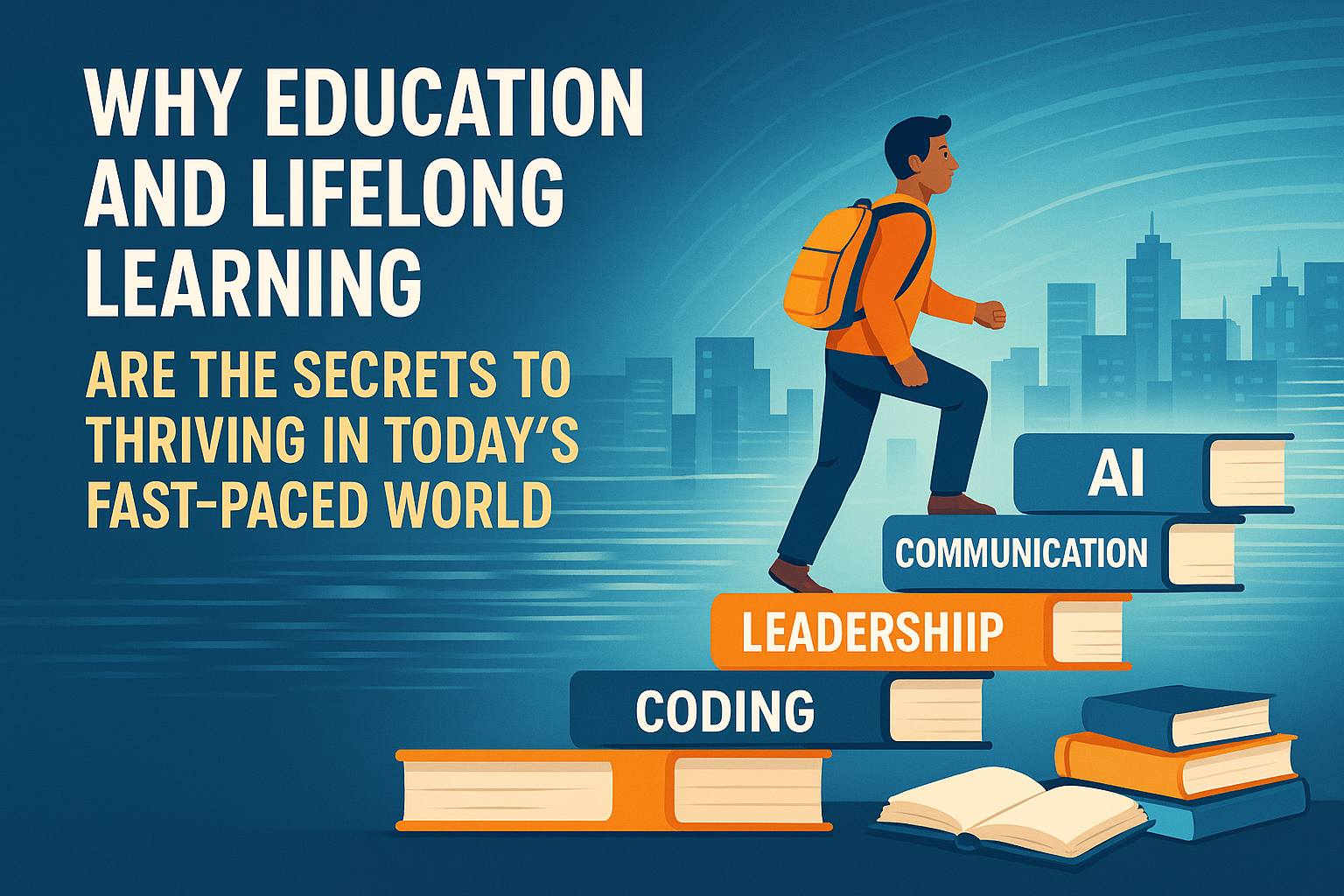Education and Lifelong Learning
Introduction
Education isn’t just something we experience in our younger years; it’s a journey that continues throughout our lives. Lifelong learning is more than a trendy phrase—it’s an essential part of personal growth and today’s fast-paced world. Whether through reading a book, taking a course, or simply learning from life experiences, embracing education at any age can open doors we didn’t even know existed.
What is Lifelong Learning?
Lifelong learning refers to the continuous, voluntary, and self-motivated pursuit of knowledge for personal or professional development. It means that the desire to learn does not stop after formal education ends. Instead, it invites us to explore new topics, skills, and ideas throughout our life.
Importance of Lifelong Learning
- Adapting to Changes: In an ever-evolving world, new technologies and methods emerge rapidly. If we don’t keep learning, we risk getting left behind.
- Personal Fulfillment: There’s joy in discovering new interests, whether it’s learning to paint, cook, or even pick up a new language. This exploration enriches our lives and helps us connect with others.
- Career Advancement: Many professions require ongoing education to stay relevant. Employers appreciate candidates who show a willingness to develop and adapt, which can lead to better job opportunities.
Types of Lifelong Learning
Lifelong learning can take many forms. Here are some common types to consider:
Formal Learning
This includes structured forms of education, such as degrees and certifications. For instance, returning to school to pursue a Master’s degree or attending workshops to obtain specific certifications in your field.
Informal Learning
Informal learning is experiential and doesn’t follow a formal curriculum. This could be learning through travel, volunteering, or even through everyday conversations.
Self-Directed Learning
This involves taking the initiative to explore topics of interest. Perhaps you’ve dedicated time to reading articles, watching documentaries, or enrolling in online courses about subjects that pique your curiosity.
How to Embrace Lifelong Learning
Starting on the path of lifelong learning may seem daunting, but it can be quite easy and enjoyable. Here are some simple steps to get you started:
Set Clear Goals
Knowing what you want to learn can help you focus your efforts. Whether it’s improving your cooking skills or mastering Excel, having clear goals gives your learning journey direction.
Make Time for Learning
Life is busy, but finding even small pockets of time can make a difference. Maybe you dedicate 15 minutes a day to reading, or you use your lunch break to watch educational videos.
Connect with Others
Learning is often more fun when shared. Join a book club, take a class, or find a study buddy. You can motivate and inspire each other along the way.
Challenges of Lifelong Learning
Like anything worthwhile, lifelong learning comes with its challenges. Here are a few common hurdles:
Time Constraints
With busy schedules, fitting in learning can feel impossible at times. However, prioritizing learning just like any other task can help.
Motivation
Sometimes it’s tough to find the drive to learn. Keeping your goals visible and rewarding yourself for small achievements can help spark that motivation.
Overwhelm
With so many resources available, it’s easy to feel overwhelmed. Instead of trying to learn everything at once, focus on one topic or skill at a time.
Conclusion
Education and lifelong learning are your allies for a fulfilling life. They allow us not just to stay relevant but to continuously grow, evolve, and connect with the world around us. So, what will you learn next? Start small, stay curious, and embrace the journey of lifelong learning. Your future self will thank you!




